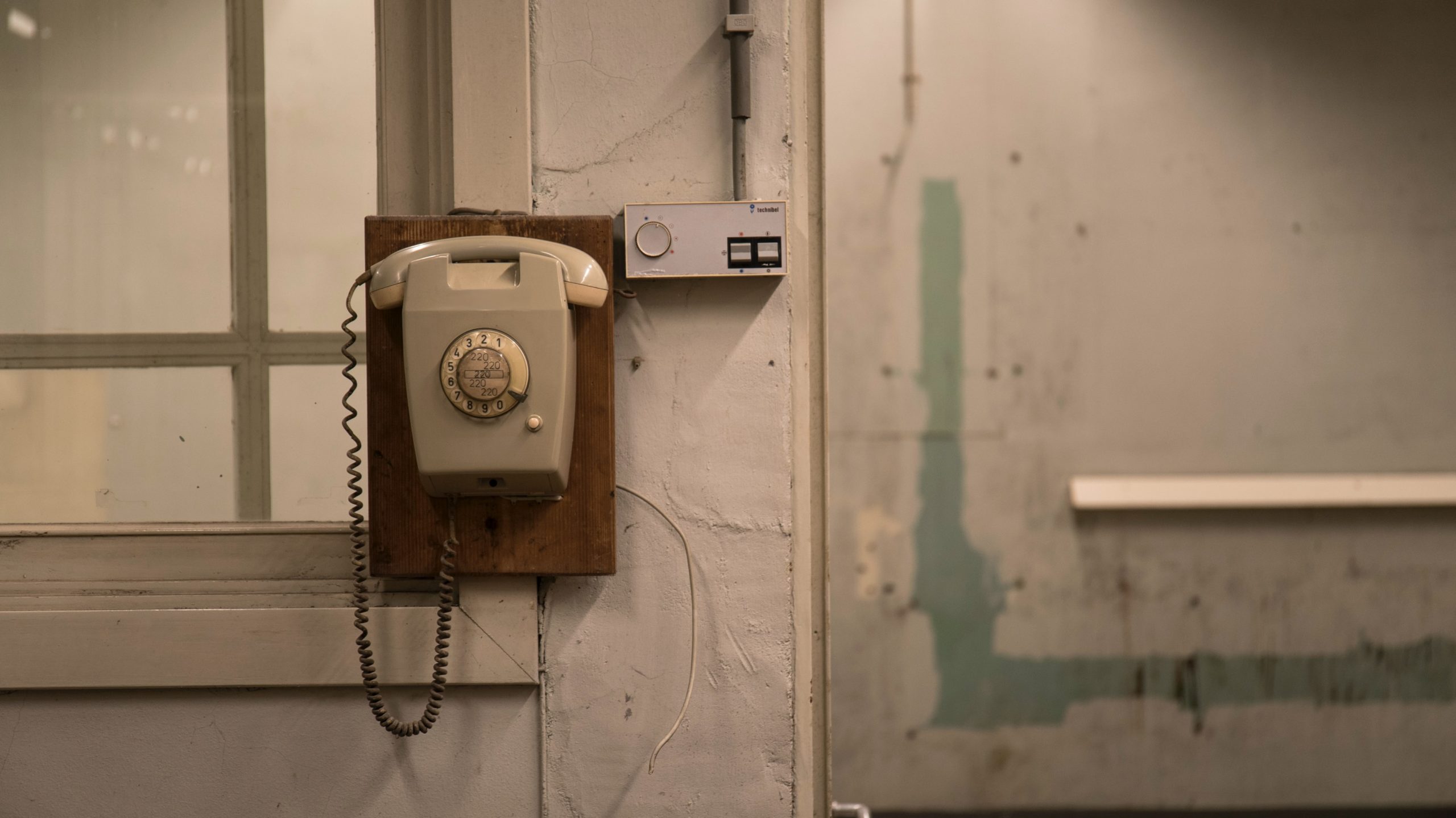



Nothing.
These are the never-ending years of being dead. The long, dark hours of the night turning slowly, vanquishing the light, the heavy blanket of the blackest hour shrouding the land, obliterating every detail.
Silence.
Not in this moment the silence of expectation, as when the pianist pauses before the completion of a well-known phrase and the heart leaps forward, knowing its end, longing for its conclusion; but the chill, ominous, dark reverberation of emptiness and lostness.
She lies in her bed and stares into the blackness. It is all ended. She is undone.
Then, in the fevered turnings of her imagination, she is, as it were, outside herself, standing before a well that is completely overgrown, suffocated with matted ivy and dense thorn. She knows she is dreaming, but at the same time she walks confidently into the dream. It is her only hope.
The night is as black as ever. The little moonlight that had led her thus far has expired. She is alone.
She stands at a place where she has stood many times before. She remembers these times. They were full of hope and optimism. The fresh, cool water she had raised from the depths of this well had revived and refreshed her, filled her with joy. But now it is defeated, barren and overgrown.
She falls to her knees. The wind has been taken out of the sails of her hoping. She dreams of water. She has to find out if there is any left. She stretches her hands forward on to the dry scrub of the ground. Hardly anything is growing around the well. The ground is dusty gravel, peppered with thistle and stone. She scrabbles in the darkness looking for a stone: looking for something to drop into the well, something to tell how far she has to go before the water rises again.
Her hand touches the polished smoothness of a perfectly round pebble. It seems out of place. It is something shaped by the operation of oceans, or the gentle caressing of a stream. But it is ready for this moment. Even as she picks it up there is a whisper of hope in her heart. But as her hand closes around it, she feels its icy coldness: cold like the night itself. There is hardly any warmth left in her body to change it.
She takes another step forward. She tears back the tangle of creepers and weeds that are almost burying the well, growing from the last remaining moisture that has clung to its crumbling walls. And then she lets the stone drop. The moment of release really is the last moment of hope.
And she waits. She imagines she can hear it turning in the air, but really there is nothing. It falls silently, hopelessly.
And she waits. She waits to hear the echo of the tiniest splash that will come back to her as blessing and comfort. But there is nothing.
How far will it fall? For how long will it go on falling? What depths will be plumbed? And when will there ever be an end to the agonizing hopelessness of hope forsaken?
‘For he is dead, my beloved, the one in whom I hoped, the one who seemed to bring so much. And my hands are empty, and his tomb is full, and there is no sense to it any more.’
Falling and falling. Tumbling and tumbling. Darkness covering darkness, ever deeper into the heart of nothingness and emptiness and void.
She waits and waits. All through the hours of the night. All through the unending silence. But nothing. A silence that is worse than silence, not even the distant full stop of the thud of stone upon dry ground, but nothing, the grim foreboding of something emptier than emptiness. She lies on her bed, but she doesn’t sleep. She just hears the stone falling and the silent emptiness of infinity enlarging and engulfing. She stares into the darkness. She can almost hear the milk curdling in the jug.
Deep calls to deep . . .
And the first sound to break the silence of the night? Her tears. Not the anguished howl that had ripped from her heart on that dreadful Friday afternoon – only two days ago – how could that be? How could days be so unendingly long, so empty? No, this was the almost immeasurable touch of a first raindrop on a spring leaf: her tear rolling from her eye, slowly traversing her cheek, leaving the faintest smudge of pain.
And then she sits bolt upright. Her hands grip the sides of her bed. The horrors of the night assault her: the sheer, bloody waste of it; the stupidity of dreaming and the unavoidable inevitability of her own death. She didn’t know when, but she kind of knew where: here, in this bed – or one just like it – alone in the darkness, dropping endlessly into the emptiness, expired and expiring, dissolving back into the meaningless hotchpotch of chemicals that had made her. And all this hope and all this dreaming, just the strange twist of that particular cocktail that was her over-anxious, over-hopeful mind: and it would be gone too, passed into a nothingness from which another life would one day rise and one day fall, and rise and fall, and rise and fall, all this hoping and all this dying, rendered utterly useless when faced with the stark fragility and terrible quiddity of living.
She rises from her bed and goes over to the window. She stares into the blackness. Perhaps around the corners of the sky there are the first, faint beginnings of the day: tiny traces of dark ochre and purple are penetrating the gloom.
She drapes a shawl around her shoulders, puts on her sandals, and, picking up some jars of ointment from the table, steps into the night.
The second sound we hear: her footsteps on the path. Resolute. Determined. She will do what she promised: the one thing left to her – anoint his body properly for its burial. And remembering the way she had been mocked and reprimanded when she had poured oil from the same jar on to his feet, she shudders. Why had they always got it so wrong?
Now the day really is approaching. It is the blackest hour – the one before the dawn – but also the brightest, for even in the darkness, day is stirring. The light is winding its way around the world, waiting to break in to her small part of it. And other sounds accompany her: somewhere a dog is barking; a rooster screams at the impending day; everywhere birds are beginning to cackle and chirp, marking out their territory, doing what it seemed for a moment all created things must do: stake their claim, post their sentries, build their walls. She can even smell the morning. The tang of thyme and wild garlic hang in the air beside the paths she hurries down. And if anyone was to see her (though no one is around, it is far too early) they would imagine she was late for an appointment. She has about her the air of someone in a hurry. But deep within her it is very different. She is propelled by resignation. She has a date with duty, and all it recalls is all that is lost, and the signs of the approaching day are just a ghastly reminder that everything is the same as it was yesterday, the whole world circling ever closer to its own demise.
Her pace slows. She is now outside the town, nearly at the garden, nearly at the place where they laid him. All sorts of other practical questions fill her mind: will the soldiers let her through (they had placed a guard at the tomb, fearful that someone might steal the body away)? Will they help her move the stone so that she can go in?
She pauses at the entrance. Her heart is beating quickly. Almost there. This one last thing to do. Almost over.
But of course something has happened. Its noise will resound around the world, delighting and dividing. But at this vital moment there is nothing at all, not even a whisper. Something is happening, but it is not heard. That is the logic-shredding awfulness of it. Unwitnessed . . . you see he was that still, small voice, that unlikely and surprising presence of God. But not opened. Not yet.
And even if you’d been there, as she was there, there would have been nothing to hear. A moment out of time broke into time and there were no reverberations, nothing that we could measure or record.
Oh, there would have been noise. That’s the strange thing. One thing does impinge upon another. But there was nothing to hear. Not yet.
In the moment of opening there was only darkness and silence.
And she rushes into the garden, suddenly sensing the awfulness of it, unaware, unknowing. And in a moment she beholds it. The guards gone. The stone rolled away. The tomb abandoned.
She stares in horror. It is hideously apparent what has happened, his body seized by some over-confident band of stupid zealots. It is also deeply frightening. There will be more controversy. More scandal. The temperature will rise again. This time it might consume her. Would it ever be over?
She looks to left and right, searching for any traces of where he might be or who might be close. But she is completely alone, and all she can see is a desecration. A cold fear, even more dreadful than the fears of the night, grips her heart. Even the opportunity for a last kindness has been stolen. And in that second an overwhelming despair rises within her. There really is no meaning left.
Somewhere deep in the heart of the universe a pebble falls into water. It is so far down and so far gone, you could not hear it, but its ripples fan out, little waves, vibrations in the air and in the seas, enough to move mountains.
The resurrection happens in silence and darkness and is greeted with as much fear as joy.
In pairs or as a small group:
All together:
Read Mark 16:1-8.